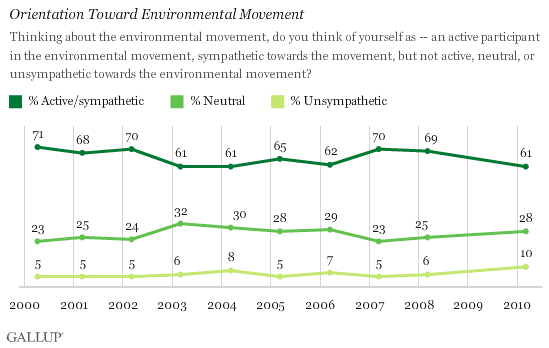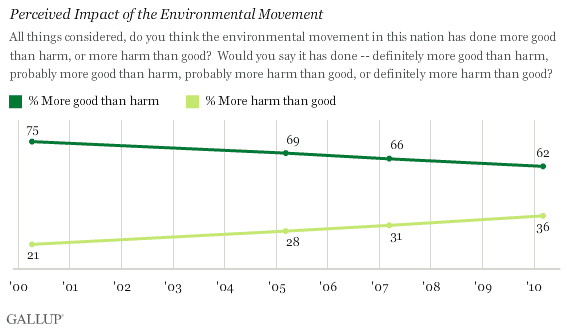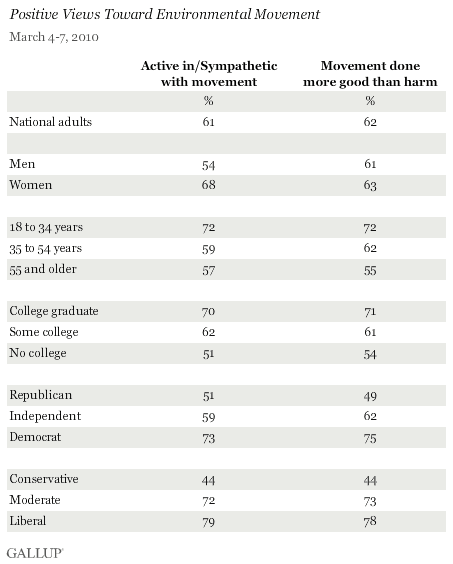PRINCETON, NJ -- Nineteen percent of Americans say they are an active participant in the environmental movement, while 42% are sympathetic, but not active. The combined active/sympathetic group has declined some since Gallup first measured this in 2000, but, at 61%, it remains high. Currently, 28% are neutral and 10% are unsympathetic.

Current U.S. attitudes about the impact of the environmental movement show a similar level of support for it. Sixty-two percent of Americans -- down from 75% in 2000 -- say the movement has definitely or probably done more good than harm. Just over a third of the public tends to believe the opposite -- that movement has done more harm than good.

On both questions, Americans who are most supportive of the environmental movement or its impact are the young (aged 18 to 34), those with college degrees, Democrats and self-described liberals. While men and women are equally likely to believe the movement has done more good than harm, women are more likely to personally associate themselves with it.

In recent years Gallup's annual environment survey has documented increased political polarization over environmental issues, particularly regarding global warming. In line with Republicans' and conservatives' increasing skepticism about the seriousness of global warming, these groups are now significantly less likely than Democrats, moderates, and liberals to be sympathetic toward the movement or to say it is doing more good than harm.
Gallup Scholar for the Environment, Dr. Riley Dunlap, provides an in-depth review of these trends on Gallup.com in a special guest commentary on this 40th observation of Earth Day.
Results are based on telephone interviews with 1,014 national adults, aged 18 and older, conducted March 4-7, 2010. For results based on the total sample of national adults, one can say with 95% confidence that the maximum margin of sampling error is ±4 percentage points.
Interviews are conducted with respondents on landline telephones (for respondents with a landline telephone) and cellular phones (for respondents who are cell phone only).
In addition to sampling error, question wording and practical difficulties in conducting surveys can introduce error or bias into the findings of public opinion polls.
